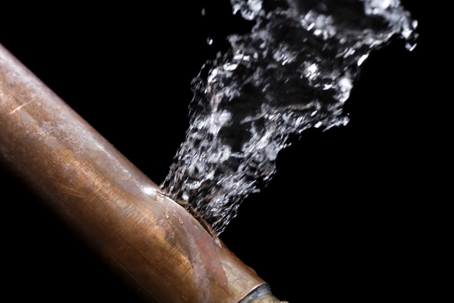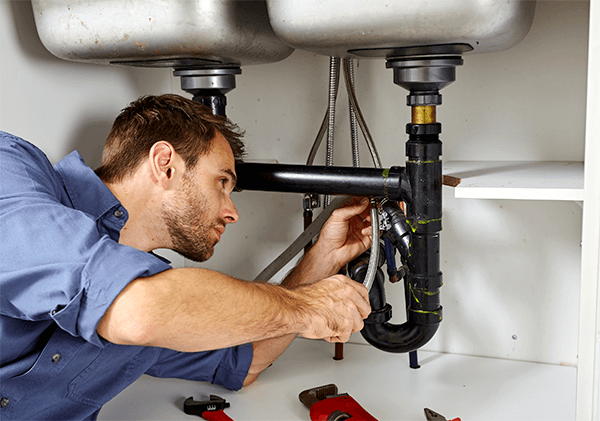Temporary Plumbing Fixes for Critical Situations Until A Plumber Arrives
Temporary Plumbing Fixes for Critical Situations Until A Plumber Arrives
Blog Article
This great article further down in relation to Plumbing Emergencies: Tips on What To Do Before is incredibly captivating. Have a go and make your own personal results.

Pipes emergencies can strike at any moment, triggering tension and prospective damage to your home. Whether it's a burst pipe, a clogged drainpipe, or a dripping tap, recognizing exactly how to handle the circumstance until a professional plumber arrives can conserve you from more issues. This post offers important emergency pipes pointers to assist you alleviate damage and regain control throughout a pipes dilemma.
Turn Off the Water Supply
The first step in any type of plumbing emergency is to shut down the water system. For localized issues, such as a dripping tap or toilet, turn off the shutoff near the fixture. In the case of a major leak or ruptured pipe, locate your home's major water shut-off valve and turn it off quickly. Understanding the location of these shutoffs in advance can conserve important time throughout an emergency situation.
Shut Off Your Hot Water Heater
In specific emergencies, such as a ruptured pipe, it's wise to shut down your water heater. This protects against overheating or damages to the unit when water quits streaming. Turn off the power supply to the hot water heater (electric or gas) and allow it cool off to stay clear of prospective dangers.
Temporarily Quit a Burst Pipeline
A burst pipeline can result in substantial water damage in mins. To reduce the issue:
Call a specialist plumber instantly to resolve the problem completely.
Have an Emergency Situation Plumbing Package
Prepare a basic pipes emergency situation kit to manage minor problems properly. Your kit must consist of:
Having these tools accessible can make a significant difference in your capacity to manage emergencies.
Unclog Drains Pipes Securely.
A clogged drain can be an irritating and messy problem. Right here's just how to tackle it:.
If these approaches do not work, avoid using excessive force, as it may aggravate the blockage.
Manage Overflowing Toilets.
An overflowing bathroom can trigger instant turmoil. Below's what you must do:.
Address Little Leaks with Short-term Fixes.
Small leakages can promptly come to be considerable issues if left unattended. Use these temporary fixes till specialist assistance shows up:.
While these solutions aren't irreversible, they can assist minimize water loss and damages.
Manage Frozen Pipeline Carefully.
In cooler environments, frozen pipelines are a typical emergency. If you believe an icy pipe:.
Know When to Call a Professional.
While quick fixes can aid temporarily, particular plumbing concerns need immediate expert attention. Call a plumbing professional if:.
Quickly speaking to a professional makes sure the issue is solved correctly and stops more problems.
Stop Further Damage.
Taking fast action to lessen damages can save you time and money in the future. Here's exactly how:.
Verdict.
Plumbing emergencies can be overwhelming, yet with the appropriate knowledge and tools, you can handle the scenario effectively until help shows up. By shutting off the water, addressing small leaks, and utilizing momentary solutions, you can decrease damage and keep your home safe. Remember, these suggestions are momentary remedies; constantly consult a licensed plumbing to deal with the source of the issue. Prep work and fast reasoning are your finest allies in any type of pipes emergency situation.
8 Helpful Tips for Managing Plumbing Emergencies at Home
If your plumbing system hasn’t failed once, wait for it because almost everyone has a story to tell. Sometimes, it could be simple emergencies such as a leaking pipe, a blocked cistern, or even a big burst pipe. In situations like this, you need to have some handy tips to save you some money and from possible damages.
Take care of minor issues early.
Sometimes, you could have avoided an emergency by taking proactive measures while it was still early. Some major plumbing emergencies can be a result of an ignored minor issue. We recommend that you have items like plumbing tapes and other related items. A plumbing tape can allow you to manage minor leaks before the plumber arrives.
Cut off the water supply.
This tip is essential in almost any type of leakage problem. For problems like minor leakages in the toilet or kitchen, turn off the supply that takes water to the affected pipes. If the leakage is a major pipe, you must shut off the supply valve to the entire building. This will help you avoid flooding your home and neighbors if you share a flat.
Know your plumbing system
Folks typically move into a new apartment without understanding the water supply around the building. This can prove disastrous if a water emergency arises and the plumber is far away. The previous tip will prove useless if you don’t practice this one. More importantly, know where your water shut-off valve is located – you’ll need that knowledge to prevent potential home floods.
Have some common handy tools
There are lots of plumbing emergencies that you can handle without hiring a plumber. That’s why you must keep some tools available always. Some tools that you can use to fix simple plumbing emergencies easily include plumbing tapes, screwdrivers, thread seal tapes, plungers, pliers, tape measures, and rubber gloves.
Insulate your pipes from cold
You’ll save yourself from many plumbing expenses if you protect your water pipes from the cold. This is because of the harmful effects that cold weather can have on your pipes. During winter, your pipes can burst from being overly expected to freezing temperatures. So, make sure insulators are there to keep the pipes working correctly.
Avoid practices that will clog your toilet.
Many people indulge in practices that can damage the plumbing system of the entire building. One of these is when they use their toilet to dispose-off garbage. They flush all kinds of things, such as paper towels, bandages, hairs, female sanitary products, etc., down the toilet. This will block your toilet in the long run, incurring unnecessary expenditures. Dump such waste in the trash instead.
Check your dials regularly.
Sometimes, there could be leakages in your home without noticing them in time. So, constantly monitor your water meter dial. If the dial is reading when there is nobody using water, this is an indicator that there is leaking. Check for leaks immediately. Call a plumber as soon as possible if you can’t find any.
https://www.constructionplacements.com/8-helpful-tips-for-managing-plumbing-emergencies-at-home/

We had been shown that article on What to Do During a Plumbing Emergency through a friend on our other blog. Are you aware of another person who is involved in Expert Tips for Emergency Plumbing Repairs? Be sure promote it. We truly appreciate your readership.
Call Today Report this page